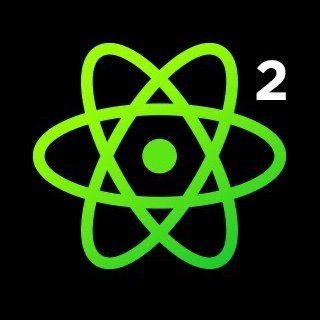I realized then also for me, like this is what I'm looking for, this is the opportunity for growth, personal growth. And I said that stuff and I was very clear about it. I might not have all the technical skills that are needed right now for this job, but I really want to advance, and I am willing to do my learning and the hard work, because that's what I wanna do, and it matches exactly what I've been looking for.
And like I said earlier with those questions, you should ask, is this the place that I can grow? I didn't have to ask the questions at that point, because Sudek, and everyone in the company, then made it very clear for me. And three or four years later, now, I don't know how many years you've been here, what do you think, like did it? Yeah, it worked out all right, you know? Did it look like the interview? A bit better, a bit worse? Yes.
Less sweat. Well done. So we have a question from Juan, and I don't know if it's Juan, I'm gonna keep saying Juan. And Milos also asked, because he said he's interested in this question. So it's the one about, people caring more about years of experience versus level of experience. And how can you balance that and like gain experience or level of experience quicker without having to wait all the years? I think something that we try to balance with that is that, we don't filter, I know for most companies, but we don't filter that much on years of experience. It's more about like what you've done and if you have like one experience that might be relevant to what we're trying to do. And then it's enough for like what I look at and then you have the homework. And so the homework is the moment where you're gonna be able to judge on the level of experience. And so I don't know, for instance, I know for the, we had, at some point we were like, and we're still not recruiting a lot of interns. But we had some people who were looking for an internship or like doing better than the people who, when we were looking for a full-time person. And so we took them as interns because they were doing better at the homework than the others. And so the homework is basically the moment where we try to test the collaboration and the level of the person. And so it helps a lot, and this is like the moments where your years of experience don't count. So, yeah, I think the homework is a big part of it to prove that you have maturity and you understand what the tools that you use. And one advice I would give for that, and I don't know, maybe it's related to feel sorry, is that many times when we share a homework, it's many times about building something. But the whole goal, it's not just that you come and you have built your thing, it's about explaining why you make some specific technical decisions. And so many times when I do a homework presentation, we start asking questions about, like, why did you use this technology, and do you know how this works? And we realized that the person didn't prepare for all of this, they just thought that they would come and they would present the project that works and it would be enough, or finished. So I think it's important whenever you prepare your homework to get the thing done, but also try to anticipate the questions you will get and prepare to answer them about your technical choices or specific technologies, like what they are and what do they mean and what do they bring, so that you can also prove that you understand what you use and that even if you don't have the years of experience, you have the level of understanding of things.
Yeah, definitely. And then there is, as you said at the beginning, there is the impact. Like, you can have 10 years of experience in a company where you just did the thing without having a big impact, or anything in your job, that is not the same as working two years in a start-up where you grew a team, or you grew processes, or you grew anything like that. So I guess start-up peers, they can't maybe double.
No, but this is the thing, I guess when we talk about experience, and we had this discussion, I don't know, who did I have this discussion with? But experience is not about number of years, because in a start-up, it's more about problem solving. So can you solve the problems we have, or not? If you can because you kind of read about them, but you didn't really do them in practice, okay, we'll consider that, but we'll do some exercises to see like, okay, but can you learn that? If you did solve these kind of problems in the past, well that's good news, then you can help us solving this problem. Every time we're doing an interview, I'm more interested in the problems that you can solve instead of like how many years you've been there. Maybe I ask the question after the fact, like, with some of the solution engineers, like, okay, how many years? But it's more like curious, how many years did it take you to learn all of these? It's more the question, like okay, how many years did it take you? More than, okay, I value the time. It's more about like, okay, the problems that you need to help solve, you need it to solve.
Yeah, especially in startup, in this kind of role where you focus on something really small. So it's like solving one really specific type of problem. I guess it's definitely what you said, Sadek. I see that there are other question.
Yes. Maybe I can take Ludmila's one.
Yeah. If you were to starting your own business, what roles would be in between these two points so as to be a good entrepreneur? For me, definitely the gross engineer because that's really about... Yeah, once again, I know, I know. No, but like, honestly, this is the closest to... I know you're honest, I know you're honest, this is not the problem. It's the closest about building a business because you are basically doing the growth of the business, working on that growth part. And that's the most important skill, especially if you're a developer. You know, develop one of the big skills that developer are lacking when they're starting out a business. There's two I would say. First one is the business sense, like understanding the business, understanding how bringing value to a market and all this stuff. And that you can partner with someone for that. And then there's the growth, like how to grow from, as I said, like one user to 10 and then to 100, and then creating virality, creating demand and stuff like that. And that's the kind of thing that you learn as doing growth, especially as a growth engineer, because you're going to see like the basics of doing that, the technical side of doing that. So I would say that that's a great thing. That's also something that we are looking for when we are interviewing for these profiles is people who want to start a business in the future and that they know that they are lacking this kind of skills that makes a difference between a product and a successful product, I'd say.
Absolutely, Chris. I don't disagree with you. I don't disagree. But I think there's, you know, basically, if you look at the solution engineer, it's important because you will understand different problems of the closing of a contract. It's a very important thing, you know. It depends what the product that you are, you know. But if you want to build a product or a company that will deal with bigger companies, it's very important. You will understand so many things about the different processes of, you know, qualifying and making proof of concept and addressing problems, and you will learn about a lot of things about how to make a product. So it's a very important thing to learn. If you're looking into DevEx, well, if you're building a developer product, a product that is done for developers, DevEx is certainly a good thing because you will learn what features matter and what features don't matter. Sometimes you really fancy something and you really love it. You love it because of the, maybe the problem solving that you have inside of it. Or maybe you love it because there is something interesting about the solution. Or maybe it's due to something that, a need that you have but no one else is having. Maybe people are not exactly similar to you. That with DevEx you learn to listen.

















Comments